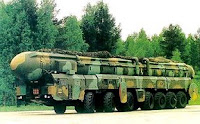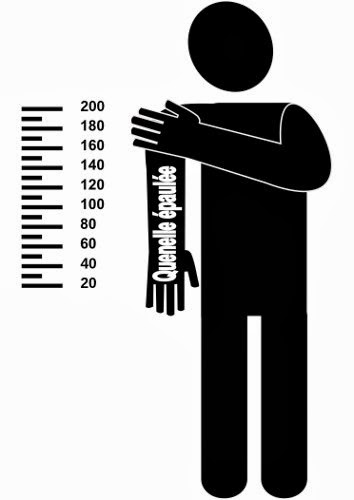Surging Past the Gates of Hell By Tom Engelhardt Sometimes, numbers can strip human beings of just about everything that makes us what we are. Numbers can silence pain, erase love, obliterate emotion, and blur individuality. But sometimes numbers can also tell a necessary story in ways nothing else can.
This January, President Bush announced his "surge" plan for Iraq, which he called his "new way forward." It was, when you think about it, all about numbers. Since then, 28,500 new American troops have surged into that country, mostly in and around Baghdad; and, according to the Washington Post, there has also been a hidden surge of private armed contractors -- hired guns, if you will -- who free up troops by taking over many mundane military positions from guarding convoys to guarding envoys. In the meantime, other telltale numbers in Iraq have surged as well.
Now, Americans are theoretically waiting for the commander of U.S. forces in Iraq, General David Petraeus, to "report" to Congress in September on the "progress" of the President's surge strategy. But there really is no reason to wait for September. An interim report -- "Iraq by the numbers" -- can be prepared now (as it could have been prepared last month, or last year). The trajectory of horror in Iraq has long been clear; the fact that the U.S. military is a motor driving the Iraqi cataclysm has been no less clear for years now. So here is my own early version of the "September Report."
A caveat about numbers: In the bloody chaos that is Iraq, as tens of thousands die or are wounded, as millions uproot themselves or are uprooted, and as the influence of Prime Minister Nouri al-Maliki's national government remains largely confined to the four-square mile fortified Green Zone in the Iraqi capital, numbers, even as they pour out of that hemorrhaging land, are eternally up for grabs. There is no way most of them can be accurate. They are, at best, a set of approximate notations in a nightmare that is beyond measurement.
Here, nonetheless, is an attempt to tell a little of the Iraqi story by those numbers:
Iraq is now widely considered # 1 -- when it comes to being the ideal jihadist training ground on the planet. "If Afghanistan was a Pandora's box which when opened created problems in many countries, Iraq is a much bigger box, and what's inside much more dangerous," comments Mohammed al-Masri, a researcher at Amman's Centre for Strategic Studies. CIA analysts predicted just this in a May 2005 report leaked to the press. ("A new classified assessment by the Central Intelligence Agency says Iraq may prove to be an even more effective training ground for Islamic extremists than Afghanistan was in Al Qaeda's early days, because it is serving as a real-world laboratory for urban combat.")
Iraq is # 2: It now ranks as the world's second most unstable country, ahead of war-ravaged or poverty-stricken nations like Somalia, Zimbabwe, the Congo, and North Korea, according to the 2007 Failed States Index, issued recently by the Fund for Peace and Foreign Policy magazine. (Afghanistan, the site of our other little war, ranked 8th.) Last year and the year before Iraq held 4th place on the list. Next year, it could surge to number #1.
Number of American troops in Iraq, June 2007: Approximately 156,000.
Number of American troops in Iraq, May 1, 2003, the day President Bush declared "major combat operations" in that country "ended": Approximately 130,000.
Number of Sunni insurgents in Iraq, May 2007: At least 100,000, according to Asia Times correspondent Pepe Escobar on his most recent visit to the country.
American military dead in the surge months, February 1-June 26, 2007: 481.
American military dead, February-June 2006: 292.
Number of contractors killed in the first three months of 2007: At least 146, a significant surge over previous years. (Contractor deaths sometimes go unreported and so these figures are likely to be incomplete.)
Number of American troops Deputy Secretary of Defense Paul Wolfowitz and other Pentagon civilian strategists were convinced would be stationed in Iraq in August 2003, four months after Baghdad fell:): 30,000-40,000, according to Washington Post reporter Tom Ricks in his bestselling book Fiasco.
Number of armed "private contractors" now in Iraq: at least 20,000-30,000, according to the Washington Post. (Jeremy Scahill, author of the bestseller Blackwater, puts the figure for all private contractors in Iraq at 126,000.)
Number of attacks on U.S. troops and allied Iraqi forces, April 2007: 4,900.
Percentage of U.S. deaths from roadside bombs (IEDs): 70.9% in May 2007; 35% in February 2007 as the surge was beginning.
Percentage of registered U.S. supply convoys (guarded by private contractors) attacked: 14.7% in 2007 (through May 10); 9.1% in 2006; 5.4% in 2005.
Percentage of Baghdad not controlled by U.S. (and Iraqi) security forces more than four months into the surge: 60%, according to the U.S. military.
Number of attacks on the Green Zone, the fortified heart of Baghdad where the new $600 million American embassy is rising and the Iraqi government largely resides: More than 80 between March and the beginning of June, 2007, according to a UN report. (These attacks, by mortar or rocket, from "pacified" Red-Zone Baghdad, are on the rise and now occur nearly daily.)
Size of U.S. embassy staff in Baghdad: More than 1,000 Americans and 4,000 third-country nationals.
Staff U.S. Ambassador Ryan Crocker considers appropriate to the "diplomatic" job: The ambassador recently sent "an urgent plea" to Secretary of State Condoleezza Rice for more personnel. "The people here are heroic," he wrote. "I need more people, and that's the thing, not that the people who are here shouldn't be here or couldn't do it." According to the Washington Post, the Baghdad embassy, previously assigned 15 political officers, now will get 11 more; the economic staff will go from 9 to 21. This may involve "direct assignments" to Baghdad in which, against precedent, State Department officers, some reputedly against the war, will simply be ordered to take up "unaccompanied posts" (too dangerous for families to go along).
U.S. air strikes in Iraq during the surge months: Air Force planes are dropping bombs at more than twice the rate of a year ago, according to the Associated Press. "Close support missions" are up 30-40%. And this surge of air power seems, from recent news reports, still to be on the rise. In the early stages of the recent surge operation against the city of Baquba in Diyala province, for instance, Michael R. Gordon of the New York Times reported that "American forces.... fired more than 20 satellite-guided rockets into western Baquba," while Apache helicopters attacked "enemy fighters." ABC News recently reported that the Air Force has brought B-1 bombers in for missions on the outskirts of Baghdad.
Number of years Gen. Petraeus, commander of the surge operation, predicts that the U.S. will have to be engaged in counterinsurgency operations in Iraq to have hopes of achieving success: 9-10 years. ("In fact, typically, I think historically, counterinsurgency operations have gone at least nine or 10 years.")
Number of years administration officials are now suggesting that 30,000-40,000 American troops might have to remain garrisoned at U.S. bases in Iraq: 54, according to the "Korea model" now being considered for that country. (American troops have garrisoned South Korea since the Korean War ended in 1953.)
Number of Iraqi police, trained by Americans, who were not on duty as of January 2007, just before the surge plan was put into operation: Approximately 32,000 out of a force of 188,000, according to the Associated Press. About one in six Iraqi policemen has been killed, wounded, deserted, or just disappeared. About 5,000 probably have deserted; and 7,000-8,000 are simply "unaccounted for." (Recall here the President's old jingle of 2005: "As Iraqis stand up, we will stand down.")
Number of years before the Iraqi security forces are capable of taking charge of their country's security: "A couple of years," according to U.S. Army Brig. Gen. Dana Pittard, commander of the Iraq Assistance Group.
Amount of "reconstruction" money invested in the CIA's key asset in the new Iraq, the Iraqi National Intelligence Service: $3 billion, according to Asia Times correspondent Pepe Escobar.
Number of Iraqi "Kit Carson scouts" being trained in the just-captured western part of Baquba: More than 100. (There were thousands of "Kit Carsons" in the Vietnam War -- former enemy fighters employed by U.S. forces.) In fact, Vietnam-era plans, ranging from Strategic Hamlets (dubbed, in the Iraqi urban context, "gated communities") to the "oil spot" counterinsurgency strategy, have been recycled for use in Iraq, as has an American penchant for applying names from our Indian Wars to counterinsurgency situations abroad, including, for instance, dubbing an embattled supply depot near Abu Ghraib, "Fort Apache."
Number of Iraqis who have fled their country since 2003: Estimated to be between 2 million and 2.2 million, or nearly one in ten Iraqis. According to independent reporter Dahr Jamail, at least 50,000 more refugees are fleeing the country every month.
Number of Iraqi refugees who have been accepted by the United States: Fewer than 500, according to Bob Woodruff of ABC News; 701, according to Agence France Presse. (Under international and congressional pressure, the Bush administration has finally agreed to admit another 7,000 Iraqis by year's end.)
Number of Iraqis who are now internal refugees in Iraq, largely due to sectarian violence since 2003: At least 1.9 million, according to the UN. (A recent Red Crescent Society report, based on a survey taken in Iraq, indicates that internal refugees have quadrupled since January 2007, and are up eight-fold since June 2006.)
Percentage of refugees, internal and external, under 12: 55%, according to the President of the Red Crescent Society.
Percentage of Baghdadi children, 3 to 10, exposed to a major traumatic event in the last two years: 47%, according to a World Health Organization survey of 600 children. 14% of them showed symptoms of post-traumatic stress disorder. In another study of 1,090 adolescents in Mosul, that figure reached 30%.
Number of Iraqi doctors who have fled the country since 2003: An estimated 12,000 of the country's 34,000 registered doctors since 2003, according to the Iraqi Medical Association. The Association reports that another 2,000 doctors have been slain in those years.
Number of Iraqi refugees created since UN Secretary-General Ban Ki-Moon declared a "humanitarian crisis" for Iraq in January 2007: An estimated 250,000.
Percentage of Iraqis now living on less than $1 a day, according to the UN: 54%.
Iraq's per-capita annual income: $3,600 in 1980; $860 in 2001 (after a decade of UN sanctions); $530 at the end of 2003, according to Asia Times correspondent Pepe Escobar, who estimates that the number may now have fallen below $400. Unemployment in Iraq is at around 60%.
Percentage of Iraqis who do not have regular access to clean water: 70%, according to the World Health Organization. (80% "lack effective sanitation.")
Rate of chronic child malnutrition: 21%, according to the World Health Organization. (Rates of child malnutrition had already nearly doubled by 2004, only 20 months after the U.S. invasion.) According to UNICEF, "about one in 10 children under five in Iraq are underweight."
Number of Iraqis held in American prisons in their own country: 17,000 by March 2007, almost 20,000 by May 2007 and surging.
Number of Iraqis detained in Baquba alone in one week in June in Operation Phantom Thunder: more than 700.
Average number of Iraqis who died violently each day in 2006: 100 -- and this is undoubtedly an underestimate, since not all deaths are reported.
Number of Iraqis who have died violently (based on the above average) since Ban Ki-Moon declared a "humanitarian crisis" for Iraq in January 2007: 15,000 -- again certainly an undercount.
Number of Iraqis who died (in what Juan Cole terms Iraq's "everyday apocalypse") during the week of June 17-23, 2007, according to the careful daily tally from media reports offered at the website Antiwar.com: 763 or an average of 109 media-reported deaths a day. (June 17: 74; June 18: 149; June 19: 169; June 20: 116; June 21: 58; June 22: 122; June 23: 75.)
Percentage of seriously wounded who don't survive in emergency rooms and intensive-care units, due to lack of drugs, equipment, and staff: Nearly 70%, according to the World Health Organization.
Number of university professors who have been killed since the invasion of 2003: More than 200, according to the Iraqi Ministry of Higher Education.
The value of an Iraqi life: A maximum of $2,500 in "consolation" or "solatia" payments made by the American military to Iraqi civilians who died "as a result of U.S. and coalition forces' actions during combat," according to a U.S. Government Accountability Office (GAO) report. These payments imply no legal responsibility for the killings. For rare "extraordinary cases" (and let's not even imagine what these might be), payments of up to $10,000 were approved last year, with the authorization of a division commander. According to Walter Pincus of the Washington Post, "[W]e are not talking big condolence payouts thus far. In 2005, the sums distributed in Iraq reached $21.5 million and -- with violence on the upswing -- dropped to $7.3 million last year, the GAO reported."
The value of an Iraqi car, destroyed by American forces: $2,500 would not be unusual, and conceivably the full value of the car, according to the same GAO report. A former Army judge advocate, who served in Iraq, has commented: "[T]he full market value may be paid for a Toyota run over by a tank in the course of a non-combat related accident, but only $2,500 may be paid for the death of a child shot in the crossfire."
Percentage of Americans who approve of the President's actions in Iraq: 23%, according to the latest post-surge Newsweek poll. The President's overall approval rating stood at 26% in this poll, just three points above those of only one president, Richard Nixon at his Watergate worst, and Bush's polling figures are threatening to head into that territory. In the latest, now two-week old NBC/Wall Street Journal poll, 10% of Americans think the "surge" has made things better in Iraq, 54% worse.
The question is: What word best describes the situation these Iraqi numbers hint at? The answer would probably be: No such word exists. "Genocide" has been beaten into the ground and doesn't apply. "Civil war," which shifts all blame to the Iraqis (withdrawing Americans from a country its troops have not yet begun to leave), doesn't faintly cover the matter.
If anything catches the carnage and mayhem that was once the nation of Iraq, it might be a comment by the head of the Arab League, Amr Mussa, in 2004. He warned: "The gates of hell are open in Iraq." At the very least, the "gates of hell" should now officially be considered miles behind us on the half-destroyed, well-mined highway of Iraqi life. Who knows what IEDs lie ahead? We are, after all, in the underworld.
Tom Engelhardt, who runs the Nation Institute's Tomdispatch.com ("a regular antidote to the mainstream media"), is the co-founder of the American Empire Project and, most recently, the author of Mission Unaccomplished: Tomdispatch Interviews with American Iconoclasts and Dissenters (Nation Books), the first collection of Tomdispatch interviews.















